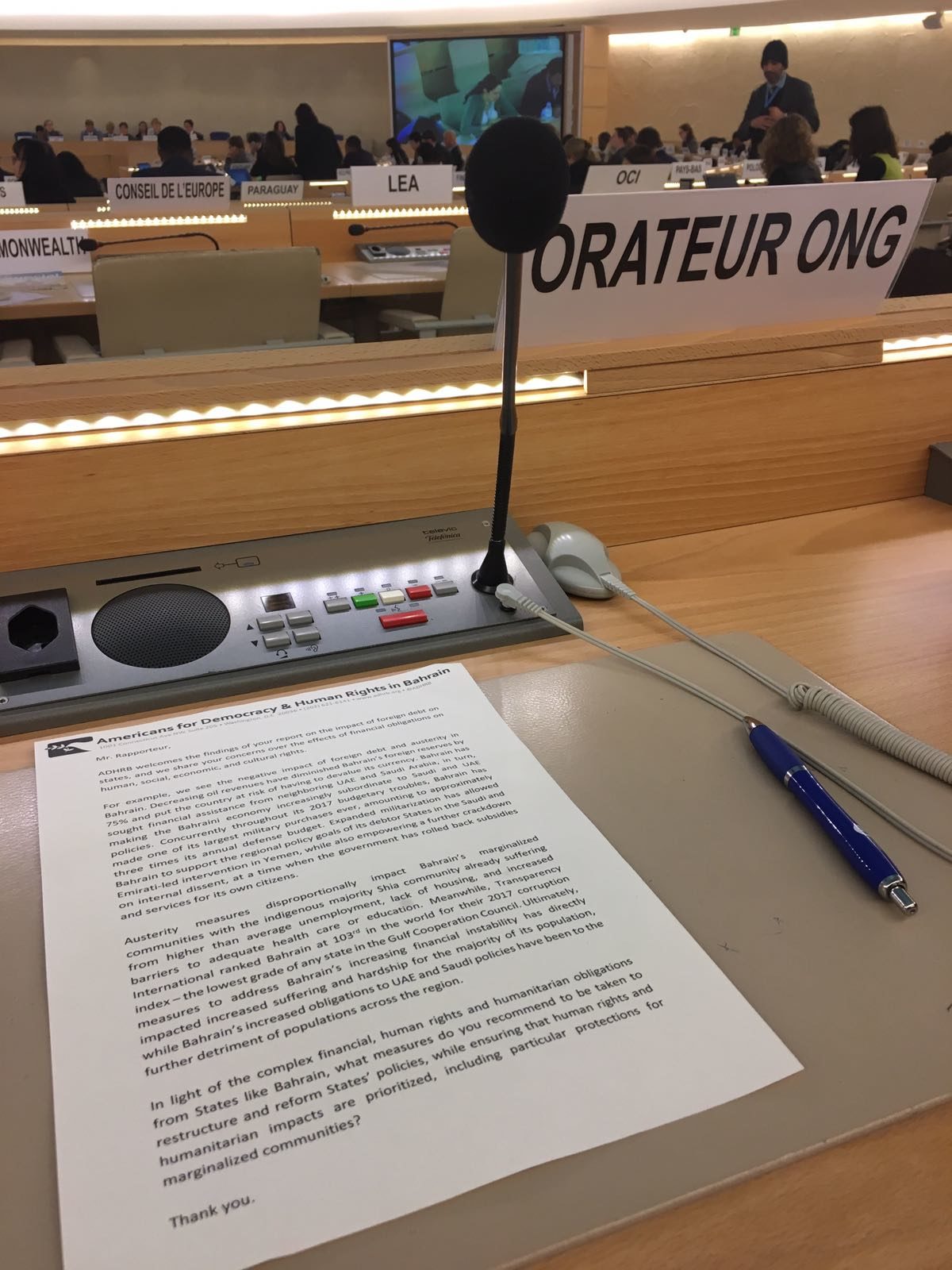On 1 March 2018 at the 37th session of the UN Human Rights Council, ADHRB delivered an intervention during the Item 3 Clustered Interactive Dialogue with the Independent Expert on Foreign Debt. In the intervention, ADHRB raised concerns that other GCC states, including Saudi Arabia and the United Arab Emirates, were financially supporting Bahrain in exchange for Bahraini support for their intervention in Yemen, while Bahrain was also using this support to increasingly suppress dissent at home. Click here for a PDF of the intervention.
Mr. Rapporteur,
ADHRB welcomes the findings of your report on the impact of foreign debt on states, and we share your concerns over the effects of financial obligations on human, social, economic, and cultural rights.
For example, we see the negative impact of foreign debt and austerity in Bahrain. Decreasing oil revenues have diminished Bahrain’s foreign reserves by 75% and put the country at risk of having to devalue its currency. Bahrain has sought financial assistance from neighboring UAE and Saudi Arabia, in turn, making the Bahraini economy increasingly subordinate to Saudi and UAE policies. Concurrently throughout its 2017 budgetary troubles, Bahrain has made one of its largest military purchases ever, amounting to approximately three times its annual defense budget. Expanded militarization has allowed Bahrain to support the regional policy goals of its debtor States in the Saudi and Emirati-led intervention in Yemen, while also empowering a further crackdown on internal dissent, at a time when the government has rolled back subsidies and services for its own citizens.
Austerity measures disproportionally impact Bahrain’s marginalized communities with the indigenous majority Shia community already suffering from higher than average unemployment, lack of housing, and increased barriers to adequate health care or education. Meanwhile, Transparency International ranked Bahrain at 103rd in the world for their 2017 corruption index – the lowest grade of any state in the Gulf Cooperation Council. Ultimately, measures to address Bahrain’s increasing financial instability has directly impacted increased suffering and hardship for the majority of its population, while Bahrain’s increased obligations to UAE and Saudi policies have been to the further detriment of populations across the region.
In light of the complex financial, human rights and humanitarian obligations from States like Bahrain, what measures do you recommend to be taken to restructure and reform States’ policies, while ensuring that human rights and humanitarian impacts are prioritized, including particular protections for marginalized communities?
Thank you.





